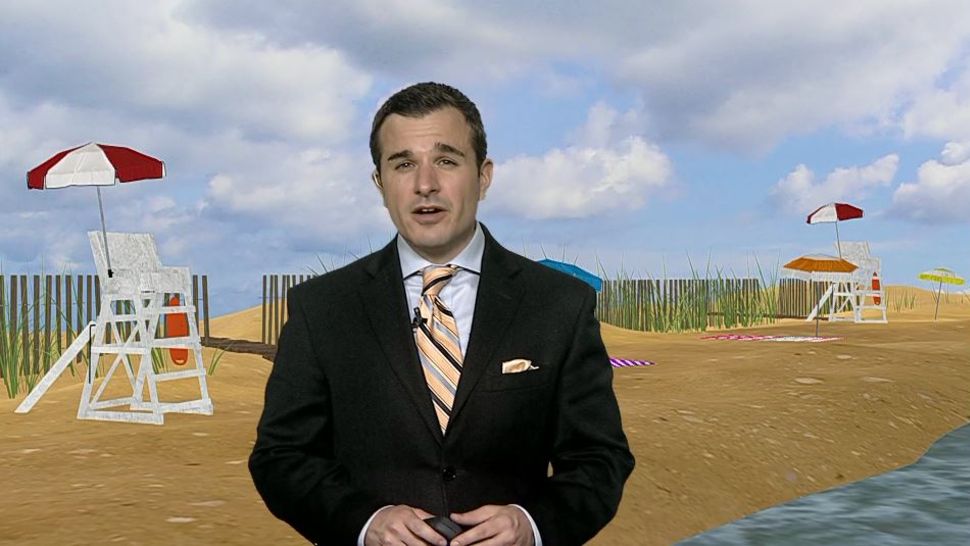ORLANDO, Fla. — It's Severe Weather Awareness Week in Florida, a week to familiarize yourself, family and friends of the hazards that we're often vulnerable to when living here in the Sunshine State.
Each day this week, Spectrum News 13’s team of certified meteorologists are highlighting some of the biggest weather hazards, and the necessary steps to take when severe weather threatens.
There will be a statewide tornado drill at 10 a.m. Wednesday.
The hazards being highlighted this week are lightning, marine hazards, thunderstorms, hurricanes, flooding, along with heat and wildfires.
Lightning
Florida leads the country with weather-related deaths from lightning, and it's the No. 1 weather-related killer in Florida. A study just released found Seminole County to have the highest lightning flash density in Florida. The second highest flash density in the state was in Orange County. So remember: "When thunder roars, go indoors."
Rip currents
One of the more overlooked marine hazards for Central Florida is rip currents. Rip currents claim more lives in Florida than hurricanes, floods, tornadoes, and lightning combined. This is why it's always best to swim within sight of a lifeguard. The chances of drowning with a lifeguard present are 1 in 18 million.
Tornadoes
A well-known weather hazard in Central Florida is tornadoes. Tornadoes can form at any point in the year. The stronger tornadoes usually take place during the dry season (October through May) when cold fronts roll through the region.
Hurricanes
The main weather-related killer associated with hurricanes is flooding. More than half of all deaths associated with them comes from flooding. This usually happens after the hurricane has passed, and people are trying to get back to return to their homes. It is important to remember whether it's flooding from a hurricane or a heavy summertime downpour to "turn around, don't drown." Hurricane season runs from June 1 through November 30. The climatological peak of the season is September 10; however, October can also be an extremely active month thanks to potential tropical development in the Gulf of Mexico and the Caribbean.
Extreme temperatures
Heat is the No. 1 cause of weather-related deaths in the United States. For example, in 2017, heat was responsible for 107 deaths in the U.S., which was above the 10-year average of 97 deaths per year. During hot weather, it's important to remember to "look before you lock": Don't leave kids or pets in cars, and be sure to check on senior populations, too. Stay hydrated by drinking plenty of water and to stay away from sugary drinks. Plus, it's always a good idea to wear light-colored clothing and to take frequent breaks in the shade when working outdoors for a prolonged period of time.
Wildfires
During times of drought, wildfires can also be a huge natural hazard across Florida. It is important to stay aware of any county burn bans in your area and to clear out any shrubs around your home during dry periods that could act as fuel for spreading wildfires, which could further endanger your property.
What you can do
So what can you do stay ahead of these weather and natural hazards? Have a plan, and start by getting emergency supplies ahead of time.
Here’s a detailed breakdown of what you and your family can do to stay safe:
Severe weather/hurricane safety
- Practice a Severe Weather/Hurricane Safety Drill:
- Decide where your home’s “safe spot” is, and have everyone meet in it.
- Make sure it’s clean and easily accessible.
- Have your severe weather safety/hurricane kit ready to go, and make sure you have shoes and a bike helmet in your safe spot.
- Talk about watches vs. warnings:
- A WATCH means bad weather could develop, and it’s time to PREPARE!
- A WARNING means bad weather is happening NOW or about to happen, and it’s time to ACT! Move to your “safe spot” and stay put until the warning is over.
- When it comes to severe weather, you need to use your common sense and stay safe.
- Put as many walls between you and the storm as possible. Stay away from windows.
- Get to the lowest, most centrally located part of your home or wherever you are at the time. Smaller rooms are the best.
- Tips on how to deal with tornadoes, lightning, damaging winds, hail, floods and hurricanes can be found at www.mynews13.com.
Study these tips with your whole family
Remember: Don’t be scared, just be prepared! Be sure to watch the Weather Experts on Spectrum News 13 every 10 minutes with your Weather On The Ones when inclement weather threatens.




